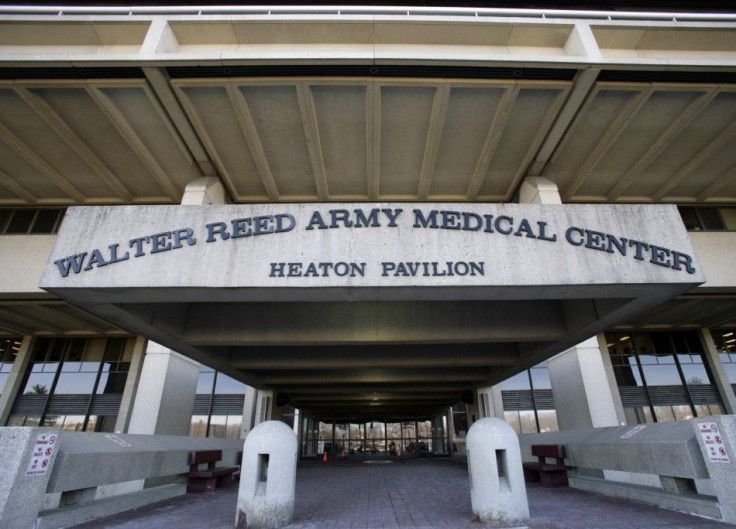Walter Reed Army Hospital Closes After More Than 100 Years

Walter Reed, the Army medical center that was viewed as a top facility for wounded warriors before a 2007 investigation revealed widespread negligence, closed with a formal ceremony on Wednesday.
More than a thousand former and current staff members and patients, some of them with wheelchairs or prosthetic limbs that bore testament to their injuries, gathered in a white tent to watch as Maj. Walter Reed's sword was symbolically returned to the Navy. Paratroopers leaped out of a plane as an Army band played.
Established in 1909, the hospital came to be viewed as the Army's preeminent medical facility, treating returning veterans and prominent public figures -- President Dwight Eisenhower died there, as did Gens. John J. Pershing and Douglas MacArthur. But a Pulitzer Prize winning 2007 report in the Washington Post depicted deplorable living conditions and a stubborn bureaucracy that deprived many soldiers of effective professional care.
Walter Reed's closure, however, wasn't related to that scandal -- Congress had already voted to close the facility two years before the story broke, citing a need to modernize the facility. The hospital will move its operations to new $2.6 billion facilities at the National Naval Medical Center in Bethesda, Md., and at Fort Belvoir, Va. The transition is to be completed by Sept. 15.
"These doors may close, the address may change, but the name, the legacy and most importantly the work and the healing will endure," Army Secretary John McHugh said.
Walter Reed had also become a hub in recent years for research on prosthetic limbs, an area that has gained increased urgency as more veterans lose their limbs to improvised explosive devices, known as IEDs, in Iraq and Afghanistan.
© Copyright IBTimes 2025. All rights reserved.




















